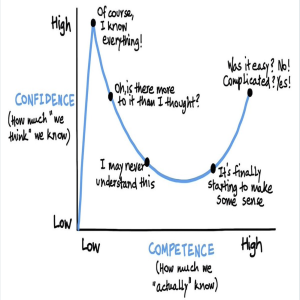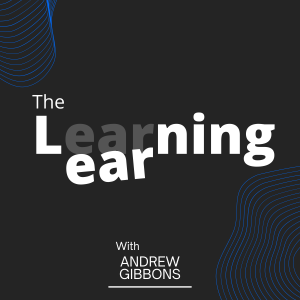
Here John Whitfield and I reflect on the key learning points that emerged from the previous day's networking event, specifically that: The skills required to directly and sensitively steer enthusiastic, energised, committed typically young early careers 'over-projectors' of competence is rarely seen, and unlikely to be found in the ranks of operationally over-loaded line management.
Grappling with issues highlighted by the Dunning/Kruger model are the real talent management challenges.
Talent is fragile and mobile, organisations just don't seem to see these really difficult retention issues as a priority. So many early careers people with high hopes and ambition leave because they are not sufficiently cared for or nurtured.
The focus of talent management is too often confined almost entirely to those at the start of a career. There are different and difficult challenges awaiting those who seek to get the most from later life employees who too often self-doubt, and question the very existence of their accumulated expertise.
The model is not rigid, holistic or generic. Thus many will not be subject to the model which is a generalised analysis, and for some it is best understood as an inversion, with a need to self-perceive an early competence others see most clearly. Equally, specific elements of a role can each be considered using the model, rather than the complete whole.
This is an excellent model with which to engage in a 'where do you see yourself?' conversation. That dialogue is best managed continuously and not at a rushed, superficial annual review.
I have summarised this video with timings - email me if of interest.
andrew@andrewgibbons.co.uk
More Episodes
 2024-04-15
2024-04-15
 2024-02-15
2024-02-15
 2024-01-11
2024-01-11
 2023-10-05
2023-10-05
 2023-10-05
2023-10-05
 2023-08-28
2023-08-28
 2023-08-26
2023-08-26
 2023-05-20
2023-05-20
 2023-05-16
2023-05-16
 2023-05-16
2023-05-16
Create your
podcast in
minutes
- Full-featured podcast site
- Unlimited storage and bandwidth
- Comprehensive podcast stats
- Distribute to Apple Podcasts, Spotify, and more
- Make money with your podcast
It is Free
- Privacy Policy
- Cookie Policy
- Terms of Use
- Consent Preferences
- Copyright © 2015-2024 Podbean.com






